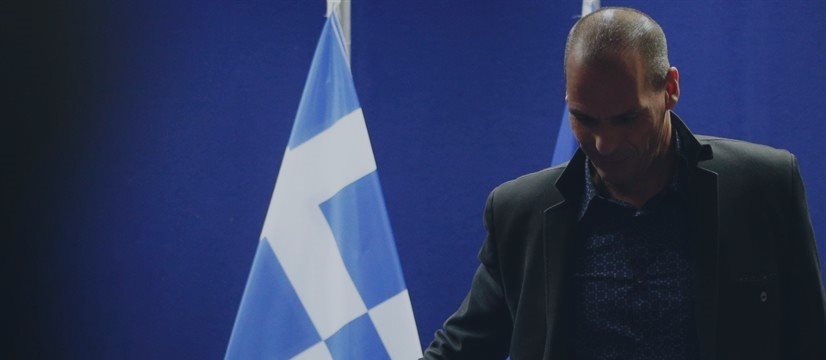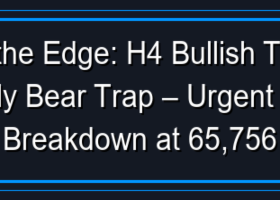
Europe crushed Greece - Yanis Varoufakis for the New York Times
Greece is still an extremely painful spot for the European Union, despite the multi-month negotiations, agreements, broken agreements and fresh agreements... For some policymakers and independent observers, returning to drachma is just a matter of time for Greece, while others suggest the dissolution of the European Union has to be prevented by all means, and staying in the euro is the only and inevitable way for the cash-strapped country. For Greece's former finance minister Yanis Varoufakis, Europe was the one who destroyed Greece.
In his article for the New York Times, Varoufakis explains that before Alexis Tsipras, former prime minister and the leader of left-wing Syriza party which came to power in January, two prime ministers have been swept from office after they were forced to adopt an unfeasible package of austerity measures in exchange for a bailout from the so-called troika of institutions — the European Commission, the European Central Bank and the International Monetary Fund. The same fate awaited Alexis Tsipras.
The end of the left-wing government was spelled when Tsipras had to surrender and take the troika's obligations. This caused a split in Syriza - between who reluctantly agreed to implement the program and the rest of approximately 40 members of Parliament - out of 149 - which included Varoufakis.
The general election set for Sept. 20 is a result of this crisis. Varoufakis, who also resigned as a finance minister, says he will sit this one out.
There is no sense in supporting the troika program either, as not only he and Tsipras knew it was destined to fail, but also Germany's finance minister Wolfgang Schäuble, and officials at the International Monetary Fund did know the deal was not viable.
"I
will not, however, join those who think that exiting the eurozone, to
bring about a major devaluation with a reintroduced drachma, is in itself a program for Greece’s recovery," Varoufakis says.
Existential crisis
The cause of Greece's woes lies in the eurozone's existential crisis, says Varoufakis.
"The pioneers of the single currency, of whom Mr. Schäuble is the last active member, were undecided whether the euro should be modeled on the international gold standard of the interwar period or on a sovereign currency, like the dollar."
He turns to history of accepting gold standard which relied on unenforceable strict rules. During a crisis, these imposed the greatest pressure on the worst-hit economies and therefore made exit the only alternative to a humanitarian crisis. This is the reason that President Franklin D. Roosevelt took the United States off the gold standard in 1933, expanded the money supply and helped pull America out of the Depression.
At the same time, a sovereign currency demands a more flexible set of responses based on political union, as the French government and Co have recently suggested.
Varoufakis puts the two questions in front of the union:
1) What kind of political union do we want?
2) And are we prepared to act quickly enough to prevent the fragmentation of the eurozone?
Europe’s hesitation is a result of a deep split between Berlin and Paris. Berlin has traditionally supported a rules-based euro area
in which every member state is responsible for its own finances,
including bank bailouts, with political union limited to a fiscal
overlord’s possessing veto power over national budgets that violate the
rules.
Paris and Rome, aware that their deficit position would bring them to a slow-burning recession under such a rules-based political union, see things through a different perspective.
Varoufakis explains that in the context of the Greek impasse, Schäuble felt that accepting an alternative plan instead of the troika’s program, would weaken Germany’s hand vis-à-vis the French. "Thus little Greece was crushed while the elephants tussled."
Varoufakis' plan
In March, the former finance minister undertook the task of creating an alternative program for Greece’s recovery, with advice from the economist Jeffrey Sachs and perspectives from such experts, as the former American Treasury Secretary Larry Summers, and the former British chancellor of the Exchequer Norman Lamont.
The proposals began with a strategy for debt swaps to ease the public
debt’s pressure on state finances. This means would allow for
sustainable budget surpluses (net of debt and interest repayments) from
2018 onward. The team established a target for those surpluses of no more than 2
percent of national income (the troika program’s target is 3.5 percent).
Thus, the Greek economy would attract investors of
productive capital with easier pressing on the government to suppress demand in the economy by cutting public spending.
The debt swaps would also render Greek sovereign debt eligible for the European Central Bank’s QE program, Varoufakis says. This in turn would hasten Greece’s return to the money markets, slashing its reliance on loans from European organizations.
In order to spur homegrown investment, the team proposed a development bank
to take over public assets from the state, collateralize them and so
create an income stream for reinvestment. There was also a plan to set up a
“bad bank” that would use financial engineering techniques to clear the
Greek commercial banks’ mountain of nonperforming loans.
The proposals also contained a series of other reforms including a new, independent I.R.S.-like tax authority.
'We the states' vs 'We the people'
The document was ready on May 11, and Varoufakis presented to key European finance ministers, including Mr. Schäuble, as the Greek Finance Ministry’s official plan.
However, it never received the endorsement of Greece's own prime minister. Why? Because the troika made it crystal clear to Tsipras that any such document would be seen as a hostile attempt to give up on the conditions of the troika’s existing program. That program, surely, had made no provision for debt restructuring and thus demanded cripplingly high budget surpluses.
The
fact that few people ever got to hear about the Greek plan is an evidence to the eurozone’s deep failures of governance.
If the grinding economic and political crisis Greece had to go through or the "Athens Spring", how Varoufakis called it, presented one lesson to learn, it is that Greece will only recover when the European states position themselves as "We the European people" instead of "We the states".
People are fed up with the monetary union which is drastically undemocratic. That is why the struggle for Greece transformed into a struggle for European values, such as integrity and democracy.
"I plan to concentrate on helping set up a Pan-European political movement, inspired by the Athens Spring, that will work toward Europe’s democratization.
Naturally, this will take years to bear fruit — years that Greece cannot afford. In the meantime, I shall continue to promote our plan for Greece’s recovery as a true, viable alternative to the troika’s impossible program."


